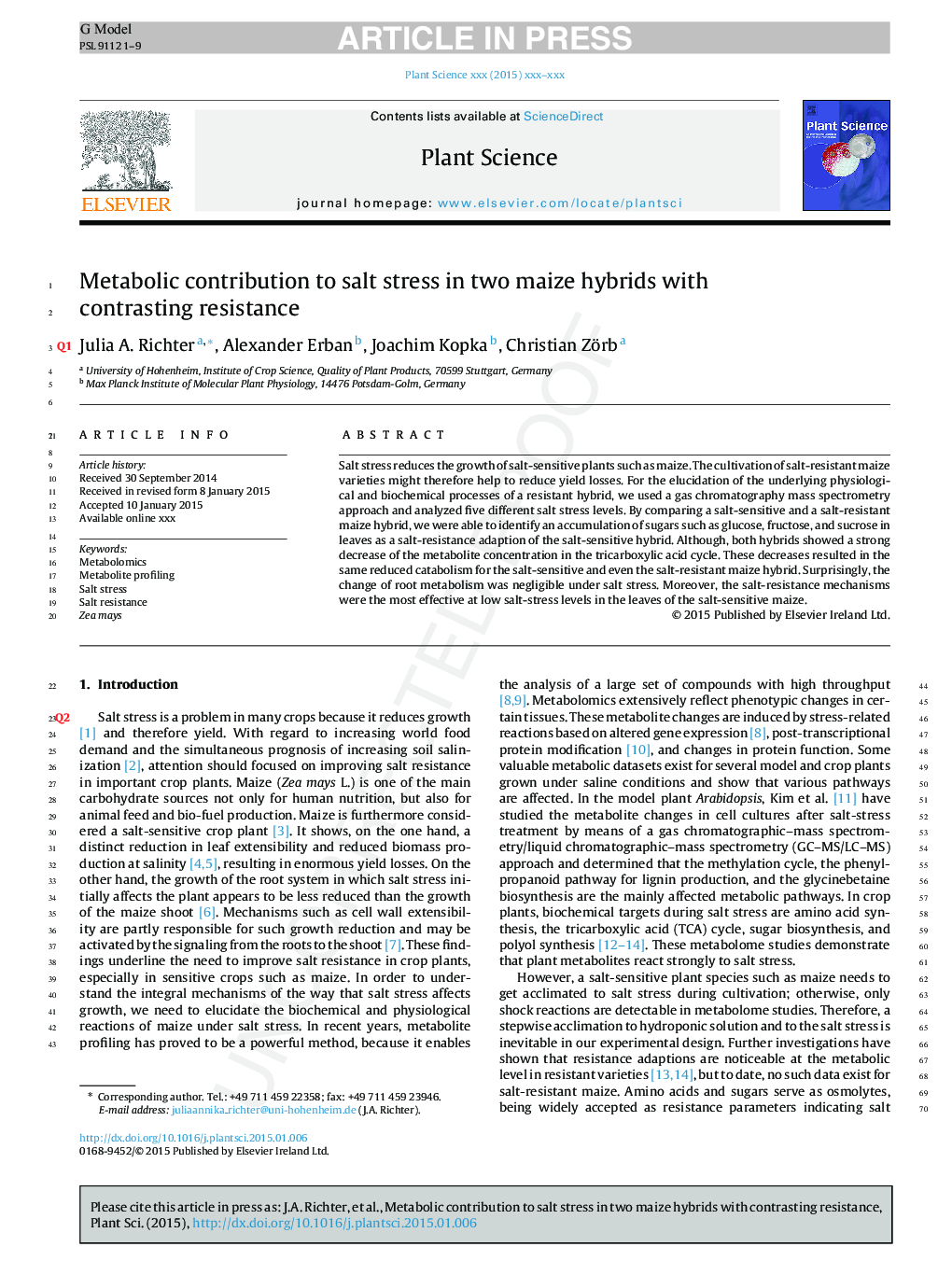| Article ID | Journal | Published Year | Pages | File Type |
|---|---|---|---|---|
| 8357863 | Plant Science | 2015 | 9 Pages |
Abstract
Salt stress reduces the growth of salt-sensitive plants such as maize. The cultivation of salt-resistant maize varieties might therefore help to reduce yield losses. For the elucidation of the underlying physiological and biochemical processes of a resistant hybrid, we used a gas chromatography mass spectrometry approach and analyzed five different salt stress levels. By comparing a salt-sensitive and a salt-resistant maize hybrid, we were able to identify an accumulation of sugars such as glucose, fructose, and sucrose in leaves as a salt-resistance adaption of the salt-sensitive hybrid. Although, both hybrids showed a strong decrease of the metabolite concentration in the tricarboxylic acid cycle. These decreases resulted in the same reduced catabolism for the salt-sensitive and even the salt-resistant maize hybrid. Surprisingly, the change of root metabolism was negligible under salt stress. Moreover, the salt-resistance mechanisms were the most effective at low salt-stress levels in the leaves of the salt-sensitive maize.
Related Topics
Life Sciences
Agricultural and Biological Sciences
Plant Science
Authors
Julia Annika Richter, Alexander Erban, Joachim Kopka, Christian Zörb,
